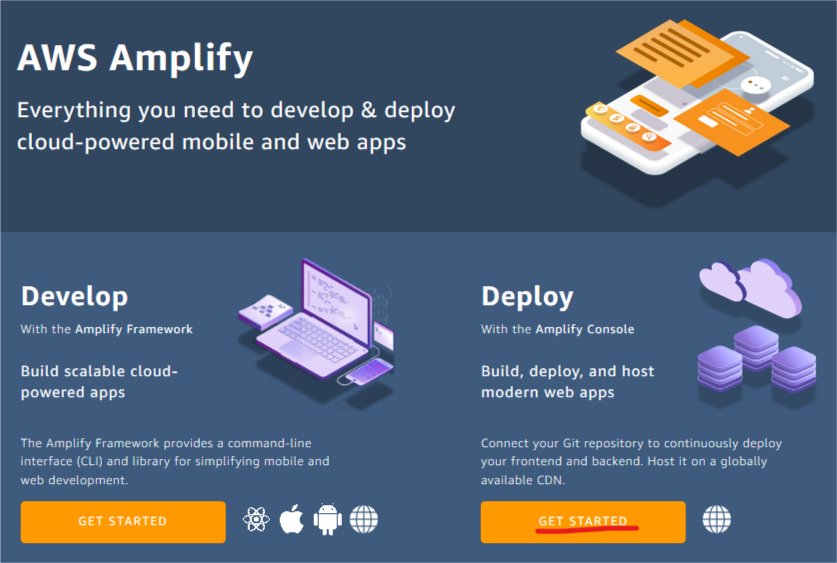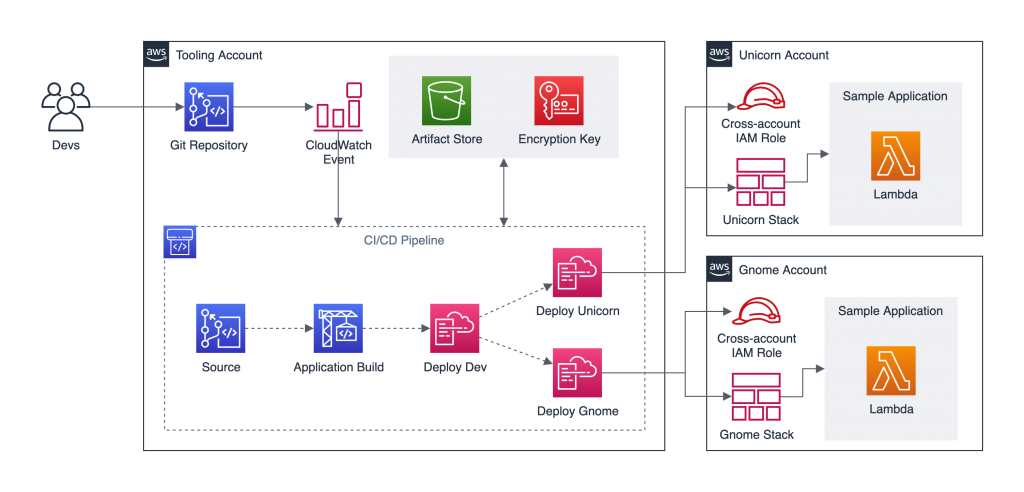AWS DevOps & Developer Productivity Blog
Rapid and flexible Infrastructure as Code using the AWS CDK with AWS Solutions Constructs
AWS Solutions Constructs provide a library of common service patterns built on top of the AWS CDK. These multi-service patterns allow you to deploy multiple resources with a single object, resources that follow best practices by default – both independently and throughout their interaction.
Building, bundling, and deploying applications with the AWS CDK
Learn how to perform application build commands as part of your AWS CDK build process by using the native AWS CDK bundling functionality.
Agile website delivery with Hugo and AWS Amplify
In this post, we show how you can rapidly configure and deploy a website using Hugo (an AWS Cloud9 integrated development environment (IDE) for content editing), AWS CodeCommit for source code control, and AWS Amplify to implement a source code-controlled, automated deployment process. When hosting a website on AWS, you can choose from several options. […]
Improving customer experience and reducing cost with CodeGuru Profiler
Amazon CodeGuru is a set of developer tools powered by machine learning that provides intelligent recommendations for improving code quality and identifying an application’s most expensive lines of code. Amazon CodeGuru Profiler allows you to profile your applications in a low impact, always on manner. It helps you improve your application’s performance, reduce cost and […]
Event-driven architecture for using third-party Git repositories as source for AWS CodePipeline
In the post Using Custom Source Actions in AWS CodePipeline for Increased Visibility for Third-Party Source Control, we demonstrated using custom actions in AWS CodePipeline and a worker that periodically polls for jobs and processes further to get the artifact from the Git repository. In this post, we discuss using an event-driven architecture to trigger […]
Building a cross-account CI/CD pipeline for single-tenant SaaS solutions
This post describes how to automate the deployment process of a single-tenant SaaS solution to deliver software quickly, securely, and less error-prone for each existing tenant. To achieve a higher level of environment segregation across the tenants, I demonstrate all the steps to build and configure a CI/CD pipeline using AWS CodeCommit, AWS CodePipeline, AWS CodeBuild, and AWS CloudFormation. For each new version, the pipeline automatically deploys the same application version on the multiple tenant AWS accounts.
Integrating AWS CloudFormation Guard into CI/CD pipelines
In this post, we discuss and build a managed continuous integration and continuous deployment (CI/CD) pipeline that uses AWS CloudFormation Guard to automate and simplify pre-deployment compliance checks of your AWS CloudFormation templates. This enables your teams to define a single source of truth for what constitutes valid infrastructure definitions, to be compliant with your […]
Standardizing CI/CD pipelines for .NET web applications with AWS Service Catalog
As companies implement DevOps practices, standardizing the deployment of continuous integration and continuous deployment (CI/CD) pipelines is increasingly important. Your developer team may not have the ability or time to create your own CI/CD pipelines and processes from scratch for each new project. Additionally, creating a standardized DevOps process can help your entire company ensure […]
Integrating Jenkins with AWS CodeArtifact to publish and consume Python artifacts
Python packages are used to share and reuse code across projects. Centralized artifact storage allows sharing versioned artifacts across an organization. This post explains how you can set up two Jenkins projects. The first project builds the Python package and publishes it to AWS CodeArtifact using twine (Python utility for publishing packages), and the second […]
Complete CI/CD with AWS CodeCommit, AWS CodeBuild, AWS CodeDeploy, and AWS CodePipeline
Many organizations have been shifting to DevOps practices, which is the combination of cultural philosophies, practices, and tools that increases your organization’s ability to deliver applications and services at high velocity; for example, evolving and improving products at a faster pace than organizations using traditional software development and infrastructure management processes. An integral part of […]









